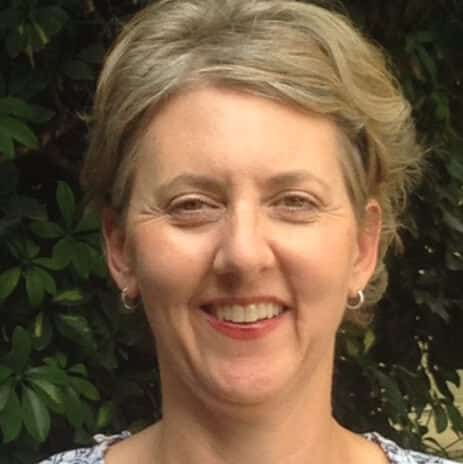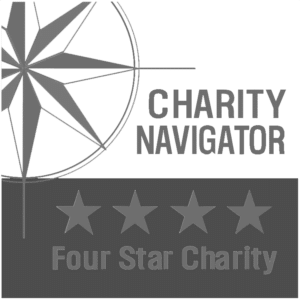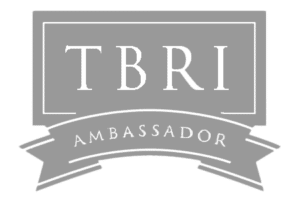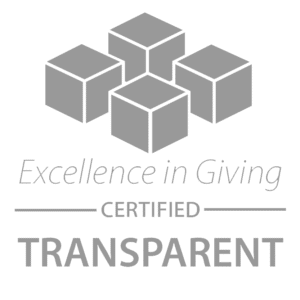You’re listening to together by AGCI. I’m Melissa Rush.
FASD, or Fetal Alcohol Spectrum Disorder, is an umbrella term for a very common condition that is estimated to affect one in 20 people in the United States. For adopted children, rates of FASD are even higher. The good news is there is incredible hope for children with FASD. To learn more about FASD and the resources available for families, we chatted with Suzanne Emery, a nurse practitioner and FASD educator. Suzanne is the adoptive mom of two boys with FASD and specializes in training parents, professionals, and caregivers on how to care for children with fetal alcohol spectrum disorders and other neuro behavioral conditions using facets of brain-based model. Let’s get into our conversation.
Well, thank you so much for just making the time to chat with me. Um, I know that this is such an important topic and something we just really want to, you know, just help families have the tools and resources to, to navigate. And to even know, I think there’s a lot of misunderstanding about what FASD um, is and can look like. And so I’m just, I just feel so grateful to have an expert willing to talk to us about it. My pleasure. So I would love if you could kind of just start off by telling me a little bit about yourself and, and just kind of how you became involved, um, in FASD education.
Yeah, my name’s Suzanne Emery and I’m a family nurse practitioner and actually lived most of my adult life in San Jose Costa Rica, where I was a missionary with a large childcare organization. So I spent a lot of my adult life working with children at risk that came from all different kinds of situations of trauma and other adverse kind of childhood, um, experiences. And along the way, God opened the door for me to adopt, um, two boys as a single person. Um, and so I knew they were six and five when I adopted them. And I knew that the path wouldn’t be easy cause they had already lived, um, through different experiences. But I felt like I was well equipped, um, to parent children that had lived through different circumstances early on in life. And, um, the old, my older son, it was kind of what I expected. He, it wasn’t easy, especially the first year, but he was very able to work through lots of different, you know, situations and feelings and memories and things. And, um, then a year later I adopted his brother and I always say that life was never the same again. Um, and what happened was the wonderful things that I knew about working with children who had lived through different experiences of trauma or other early on in life, um, didn’t work with him and everything I did instead of helping it made things worse.
And I knew that my voice had been, um, prenatally exposed to alcohol. And as a nurse, I started wondering if that had anything to do with the behaviors that weren’t responding to great traditional techniques that we use, um, with my younger. So that’s really how I got in to the field of fetal alcohol, looking for what I needed as a parent to parent my younger son. And because of that search, I got in contact with somebody here in Portland, Oregon, Diane Malbin who created a model called the facets neural behavioral model, um, which is a brain-based approach to understanding not only fetal alcohol, but all of what we would call neuro behavioral conditions, um, whose conditions that, who the root is in the brain, um, brain differences. Um, so that’s kinda how I got into this field. And then I ended up ending up doing it pretty full time. Yeah. That’s I, I love that you, you know, kind of had this experience in your personal life and were like something that can be very overwhelming and baffling and you, um, took all that you like learned and kind of at your approach to try to figure that out, to then help other people and other families and kids, which I think is like really amazing. Um, cause as I’m sure, you know, like that can be an overwhelming thing to try to, to deal with and to find strategies.
Um, so can you kind of, just for people who don’t know, like on just a simple as level as you can make it, what is FASD and how, how common is that in children and adults? I guess? So FAS Dstands for fetal alcohol spectrum disorders. That’s kind of an umbrella term for a person who, um, was prenatally exposed to alcohol. Um, and because of that, there can be many, many different effects from that. But, um, the most effected, um, system happens to be the neurological system or the brain. Um, and so it’s actually extremely common in the United States. The CDC has statistics that would tell us that one out of every 20 people in the United States is probably on this spectrum. That means it’s more common than ADHD and autism and all these other, um, conditions that we more commonly hear about. Right. And it’s true around the, around the world, like in South Africa, there are stats that would tell us one out of every eight people might be on that spectrum. Um, and in Europe it’s also extremely high, even higher than the United States. So really this is a worldwide, um, condition because simply because alcohol is used in every country and we know there is no safe amount of alcohol, either for them father around the time of conception or any time during conception pregnancy breastfeeding for mothers.
And so it is a spectrum, some people were exposed and you really don’t notice that at all. And others were exposed and have a hard time really getting through a day. Is there a time in pregnancy where it’s most, I mean, obviously you said it’s not safe at any time, but is there like a correlation between the timeframe that a, um, a mom potentially was drinking and kind of seeing the effects of FASD or is that not even known? Right. So that’s part of the ministry around this, right? Because, um, just because a father or mother was drinking from conception through breastfeeding doesn’t mean, right. That, uh, equals B that the child necessarily is going to be affected. But we do know that early on, you know, before a mom even knows she’s pregnant, um, is really the most dangerous time because the first system that is being developed once the egg and sperm unite is the neurological system. So if those first cells are exposed to alcohol, it’s kind of like a domino effect. Every other cell that comes after that, um, can also be affected. So yes, there can be effect at any time, but probably that window of time between conception and the first few weeks of pregnancy are the most kind of, um, I don’t know if dangerous is the word, but the riskiest, the word there could be more effects. Wow.
And I think that’s something that a lot of people don’t even know at all. Yeah. Which is makes sense why it’s right. Because social drinking is very common and lots of people know once they’re pregnant, that it’s not a good idea to drink, but lots of people, you know, are planning on getting pregnant. The rate of unplanned pregnancies is very high. And the fact that men also, if a man is drinking around the time of conception can greatly affect the fetus in many different ways. Um, so you’re right. The education is not out there where it needs to be. Yeah. So kind of coming off of that, like, what are some common misconceptions that you, that you hear like as an educator about FASD? Well, I think one is just what we’re talking about. People don’t realize how common and prevalent it is. Um, children in the fetal alcohol spectrum are often misdiagnosed with ADHD or autism or reactive attachment disorder or some of these other more commonly known diagnosis. And it’s simply because professionals themselves don’t receive the education they need in their educational, um, formation. And so they are making their best guests and FASD looks very similar to ADHD and autism and reactive attachment disorder. Um, so that’s one. The other thing is, is that it’s considered an invisible physical disability because just looking at a person, um, you may never know that they have a brain-based condition or differences, right.
And so what happens is parents and teachers and other people in society expect a person or a child to respond in the ways that we would expect when we use, you know, good parenting techniques and when a child doesn’t then without knowing what’s going on, we normally jump to the conclusion that they’re being disobedient or manipulative or they’re lying or not trying, and all these different, instead of understanding that behind those behaviors, there’s an underlying brain-based condition that is not understood. Yeah. And that can, I can only imagine that that can make it especially tricky when you’ve kind of had this approach maybe with your other children, um, that’s worked and then you think, well, what am I doing wrong or why, why isn’t this connection being made? And, and the truth is that it can’t be that, you know what I mean? There’s, there’s another, there’s something else going on. It’s, they’re not choosing intentionally to, to lie to you or to not, you know, do, as you ask. Um, I’m sure that can be really challenging for families to navigate. Right. And something you just mentioned. I was just talking to him on this morning. What ends up happening is often the professionals working with that child kind of are blaming the parents. Like, um, what are you letting this child watch? What kind of discipline are you using? You just need to be stricter or firmer or whatever.
And, um, it’s, it’s nothing that the parents are doing or not doing. It’s simply that we’re not understanding the source of the, and then creating accommodations and good fits just like we would for anybody else that has a more visible, um, physical condition or disability. Yeah. And that, I mean, I think that just goes back to why education is so important for forever to get your kids, the resources and strategies that they need to do to be the best version of themselves. And also for parents to not feel like, well, what am I doing wrong? You’re not doing anything wrong. You know, you just need some additional resources. Um, I think that’s really important. So you, you said that, um, FASD can get kind of confused with a lot of other conditions. How is there a process for diagnosing a child with FASD or how does that work? That’s another great question. And unfortunately it’s pretty complicated because what I mentioned previously, there are so few professionals that are really adequately trained and understand fetal alcohol and then know how to diagnose it. Right. So there are very respected and well-known clinics in the United States that do, um, the diagnostic process, which is not, um, when it’s done well, it’s not an easy process. It’s can be a whole day process or take a lot of different kinds of interviews and testing. Um, so that’s, that’s a big obstacle.
Um, and, um, many professionals simply aren’t even thinking about fetal alcohol, so it wouldn’t be on their radar to diagnose it, but it really does. I mean, today, the people that are doing it well, it’s a team of people, right? So, um, like a medical doctor and a social worker and occupational therapist and educator and physical therapist and different, um, people that would evaluate, um, and get the history right. Of the child, which sometimes we don’t know that’s the other huge obstacle. Um, because sometimes we don’t know the history of a child, if we’re fostering or adopted, we may not know for sure that there was alcohol exposure. And so right now, if that is not known, for sure there are some places that would still diagnose by behaviors in different, um, characteristics that we see very typically, but it’s not so straight forward sometimes. Yeah. Yeah. That can be challenging. I’m sure. To navigate. Um, I know that there is such a spectrum. Can, can you talk about kind of what that can look like on, on both ends and kind of the, between yeah, so exactly. Um, kind of also what I mentioned before, there are people that were prenatally exposed to alcohol that, um, they may not know that and nobody else may ever know that and they get through life without ever having to really consider that. Right. Um, so very high functioning.
Um, I have two boys and my older son, um, was also prenatally exposed, but very high functioning. He has some, he had some like ADHD characteristics when he was younger. And I have come to know that, um, he processes a little bit slower. So like in a conversation it’s hard to have kind of this back and forth exchange. I have to wait a little bit to get a response. Um, but you know, he’s done wonderful in school, just an easy child to parents. Um, and so, you know, he’s probably on the side where he’s minimally affected and then my other son has a hard time getting through the day. Right. So what that looks like, and it is also very different from individual to individual, but, um, he can be very impulsive. He has a hard time making decisions. He has a hard time sitting still for very long. Um, he has memory issues. So, um, that sequential kind of learning, um, it’s hard cause there’s kind of gaps. And so what do you learn today? It’s not that it disappeared, but it’s almost like he has to start over again, you know, two days from now because he doesn’t remember. Um, he, um, there’s a lot of different areas that can be affected. Like again, like language and communication. A lot of people exposed to alcohol tend to be very concrete, literal thinkers.
So anything abstract like math or time, um, decision-making again, uh, money, those kinds of things can be challenging because we can’t see them. Right. Those are just a few of the areas. Um, there, there are a lot of different areas that can be affected and make life more challenging. Yeah. So what, uh, so again, I know it varies so much, but what, what are some kind of, I don’t know if treatments is the right word, but therapies or strategies for kind of helping alleviate some of those struggles whenever possible. So in my experience, what I find is most helpful is actually not even directed at the child or the person prenatally exposed. It’s making sure that the parents, teachers, anybody in that child’s life understands that the brain differences that there are, and being able to identify the source behind the behavior and then being able to a better fit for that person. Like I mentioned before, kind of creating accommodations like we would for anybody else that has a more visible, physical, um, condition. So as we understand who a person is and really build more on their strengths and abilities and how they learn and focus less on trying to make them do things that they probably aren’t able to do, they actually can settle. And we actually end up seeing more growth and maturity and progress.
And even some of these areas that where their brain has been affected, um, and they’re kind of set free to be who they are. So really the focus we end up kind of coming to the same result, but through a totally different path, for example, it gets school. They often make IEP, right. Individual education plan and what we call those are individual environmental plan. So it’s usually things around the child, the adults even having to change, right. Their expectations and kind of evaluating their own values. And as that shifts, um, it actually, um, helps the child be able to be the beautiful creation that they are instead of living in chronic stress and frustration. Yeah. I, that’s kind of a, a beautiful solution that I kind of wish was applied to all people, because I think we put so much pressure on ourselves and our kids to kind of be this made up version. I’m not quite sure where we got that from, but, um, everyone has, you know, different strengths. And I think if you, and different ways that they learn, regardless of if they have FASD or not. I mean, so I think just that approach in education and parenting in general would be a good thing. Exactly. I’ve had lots of parents go through the facets training that say, this is a beautiful way to parent every child, a beautiful way to look at every person in the world.
Um, yeah, you’re right. Totally right. So for someone who’s, you know, hearing this and is like, oh my gosh, I hate, I think maybe my kid has FASD or might’ve been exposed to alcohol prenatally. Like what, what’s the first step they should take? Well, um, yes, I would say kind of the, the first thing when I work with parents, there’s a wonderful little book again, by somebody I mentioned earlier, Diane Malbin who was the creator of the neural behavioral model called trying differently rather than harder. And that’s a wonderful little book. It doesn’t take long to read, and it really has helped some parents call that they’re like parenting Bible, um, because it really has shifted so many people’s ability to understand where behaviors that are causing a lot of stress and frustration. And we’re not understanding. And no matter what we do, it seems like things get worse instead of better from there. If somebody is able to take the training that facets offers, we do webinars all year round, like six week webinars for parents. Um, that’s another wonderful place to start really understanding and being able to come along with other parents who not only for fetal alcohol, but like I’ve mentioned all of these other neural behavioral conditions, being able to look at behaviors through a brain-based lens. Um, and then there’s application tools that through that training will be taught.
So that, for example, when there’s behaviors that cause a lot of emotional, uh, people in the adults, um, there’s a way to kind of work through that and understand why is this making me so upset? Um, and then as we do that, we, we can see, oh, you know, this would be a better way of, um, handling this situation. And it actually helps us shift from one emotional platform to the next, and then we in the end help our child. Right. And then there’s other tools that we use, like if the child’s not, um, meeting different tasks and expectations to kind of in a logical way, work through that and understand what somebody’s brain has to be able to do to do whatever it is, or to benefit from whatever therapy or whatever we’re trying to do. And then through again, another kind of sequential process we come up with, oh, well, you know, in this case, let’s try this another, um, I know a really common thing is called this maturity, which is, it’s very common that this population, for example, they might be 15 years old, but in many areas are functioning more like about half their age, about eight. So sometimes just like adjusting, um, our expectation and thinking, okay, this big 15 year old in front of me, how would I respond in this situation? If they were only eight where they may be more, you know, developmentally.
And then I would have, I always encourage people. I mean, we need each other, it can be a very lonely path and you can feel very misunderstood as a parent and judged. And so, um, there are, um, support groups either through facets or other people that have been trained through facets that are wonderful ways for parents to connect and to continue to in an intentional way, apply this model. And then there’s also one-on-one, you know, work with people like me, um, or others. Um, but I would say those are kind of like the first steps in understanding who your child is and fitting your parenting style and the environment around the child to really help them be who, who they are. Yeah. Awesome. That’s great. Um, can you just, what is the, what is the website where people can find the webinars and all that great content? So it’s www.fascets.org. Okay, awesome. Yeah. I just want to make sure people can find that. Um, can you, can you leave us with a message of hope just for, for families that are kind of navigating this? Yeah. So I always tell parents and people in general, it’s never too late to understand what’s going on behind a person’s behavior.
And the earlier on in life that we can understand where a person’s behaviors are coming from and create what we call this good fit between who they are and our parenting and understanding and advocating for them, right. The better the outcome. So I’ll just, I’ll just leave, um, with a story about a girl who actually had fetal alcohol syndrome, which is within that spectrum. Um, but she, she started out, you know, relatively okay, as a young a child. And as she went through school, things got harder and harder. And, um, once she got into high school, she was having really difficult time academically and socially. And at 15 years of age, she was diagnosed with fetal alcohol syndrome within the fetal alcohol spectrum. And her parents started learning this, um, brain-based model and they realized they needed to start focusing on her strengths and passions instead of trying to make her do things that were just really very difficult or she couldn’t do. And so in this case, they decided to pull her out of school and not have her finish her high school diploma. And they knew that she loved her passion was cats. And so they, um, helped her create her own cat sitting business. And today she’s in her thirties, she’s married, she has a child and she helps support the family by a cat sitting business that she loves she’s happy and, and doing well.
And I always think what would have happened in her life if her parents would have kept pushing that she just kept doing school. And, um, and instead of looking at who she really was, or his as a person and encouraging in that and doing what they could to support in that. So that’s just an example of success, which many, many, many stories, um, of both the child and the parents being totally transformed and healed because of really understanding who their child is. Yeah. Yeah. Oh, that’s thank you for sharing that. That’s a beautiful story. And again, I mean, I just think like we should just apply this to, to all people. Like, I, I mean, just like, what are your strengths? What, what gets you excited? And then look at that as a model of success. And that, I mean, that’s wonderful. Like she has her own business, she’s married and has a child and is happy. Like that’s what we all want for, for everyone, right? To like find, find love and happiness and success in whatever way that means for you. And it doesn’t have to be this model we’ve made up, but is like, doesn’t necessarily apply to everybody. Right. Which is hard, right. Sometimes for parents, because we have this certain idea of what success looks like, especially in this culture that, you know, it’s often finish high school, go to college, you have to have a career.
And that’s fine if that works, but there’s so many people that that’s not going to be an option. So there’s gotta be many, many different paths for how to be, um, who God has created us to be. Right. And use the gifts and talents and passions that he has given us to bless the world. Absolutely. Um, well that, that certainly made me feel hopeful just about humanity. So thank you, Suzanne, for sharing that. Thank you so much for taking the time to talk with me. And, um, again, I just, I think this will be such an encouragement to people who are kind of just learning about this and, or navigating it. And there is so much, um, hope and there are great resources and you’re not alone. Right? Exactly. Well, thank you for having me here today and I’m happy to do whatever I can to support families who have children with challenging behaviors that are hard to figure out sometimes. Yeah. Yeah. Well, it’s, it’s kind of, it’s just understanding and education, it’s it go really far. Right. And so, and just being able to have this knowledge, and even if you’re not a parent, but you interact with kids to be able to recognize that and to kind of have it try different approaches and, um, kind of figure out, uh, how, how you can best help. I mean, that’s what we all, all are here to do.
I have, I have there’s one organization in Washington that requires that all of their staff attend this training once a year. And one time I had somebody coming to that training who was the bus driver and he says, do I really have to be here? And I said, I don’t know, go ask your supervisor. And the said, yes, you do sit down and you’ll see why. And at the end of the three-day training, he was the one that stood up and he said, everybody in the world should know this. He said, I will be a totally different driver from now on this totally helps me understand so many people in my bus and how to interact with them. And, um, it’s true. We can see the whole world through this lens and be much more compassionate and understanding and loving than judgmental and, um, not loving. Right. Absolutely. I love that story. That’s so great. Um, yeah. Well, thank you again, Suzanne, just for making the time and, um, appreciate it. Welcome Melissa. Thank you. And I’m here to help in whatever way you guys need. That was Suzanne Emery, nurse practitioner and FASD educator.
Thanks for listening to together by AGCI. As always, if you liked what you heard, please rate or review us wherever you listen to podcasts. If you’d like to read or watch even more stories, check out our website, allgodschildren.org, reach out to us and let us know what you think on Instagram @allgodschildreninternational or email us at together@allgodschildren.org. We look forward to sharing another story of hope. The next time we’re together. We’ll talk to you soon.










